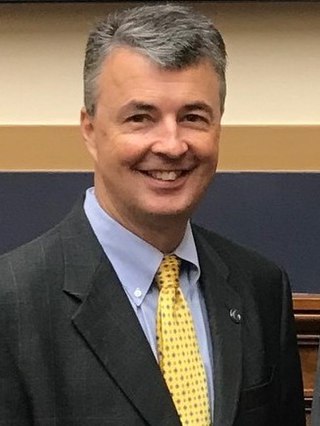
Sarah Elizabeth Parker is an American judge who served as the chief justice of the North Carolina Supreme Court from February 2006 until August 2014.

The Minnesota Supreme Court is the highest court in the U.S. state of Minnesota. The court hears cases in the Supreme Court chamber in the Minnesota State Capitol or in the nearby Minnesota Judicial Center.

Charles Allen Graddick Sr., was the 42nd attorney general of Alabama from 1979 to 1987. He later served as a judge of the 13th Judicial Circuit Court of the U.S. state of Alabama.

The Supreme Court of Oklahoma is a court of appeal for non-criminal cases, one of the two highest judicial bodies in the U.S. state of Oklahoma, and leads the judiciary of Oklahoma, the judicial branch of the government of Oklahoma.

The government of Alabama is organized under the provisions of the 2022 Constitution of Alabama. Like other states within the United States, Alabama's government is divided into executive, judicial, and legislative branches. Also like any other state, these three branches serve a specific purpose in terms of power.
Drayton Nabers Jr. is an American lawyer and former Chief Justice of the Alabama Supreme Court. He was appointed to the court in 2003 by Governor Bob Riley following Chief Justice Roy Moore's removal as a result of his refusal to remove his Ten Commandments Monument from the State Judicial Building despite a federal court order to do so, an event that attracted national media attention.

Roy Stewart Moore is an American politician, lawyer, and jurist who served as chief justice of the Supreme Court of Alabama from 2001 to 2003 and again from 2013 to 2017, each time being removed from office for judicial misconduct by the Alabama Court of the Judiciary. He was the Republican Party nominee in the 2017 U.S. Senate special election in Alabama to fill the seat vacated by Jeff Sessions, but was accused by several women of sexually assaulting them while they were underage and lost to Democratic candidate Doug Jones. Moore ran for the same Senate seat again in 2020 and lost the Republican primary.

The Alabama Republican Party is the state affiliate of the Republican Party in Alabama. It is the dominant political party in Alabama. The state party is governed by the Alabama Republican Executive Committee. The committee usually meets twice a year. As of the February 23, 2019 meeting in Birmingham, the committee is composed of 463 members. Most of the committee's members are elected in district elections across Alabama. The district members are elected in the Republican Primary once every four years, with the most recent election for the committee having been on June 5, 2018. The new committee takes office following the general election in November 2018. In addition, all 67 county GOP chairmen have automatic seats as voting members. The state chairman can appoint 10 members. Each county committee can appoint bonus members based on a formula that theoretically could add 312 seats, although that formula currently calls for only about 50 seats.

Kay Ellen Ivey is an American politician who is the 54th governor of Alabama, serving since 2017. Originally a conservative Southern Democrat, Ivey became a member of the Republican Party in 2002. She was the 38th Alabama state treasurer from 2003 to 2011 and the 30th lieutenant governor of Alabama from 2011 to 2017.

The Alabama Court of Criminal Appeals is one of two appellate courts in the Alabama judicial system. The court was established in 1969 when what had been one unitary state Court of Appeals was broken into a criminal appeals court and a civil appeals court. The unitary Court of Appeals had been operative since 1911. The Court of Criminal Appeals is the linear descendant of the unitary Court of Appeals as its predecessor judges were automatically assigned to the Court of Criminal Appeals in 1969. At that time the court only had three judges, but that was changed to five in 1971. The court is housed in the Heflin-Torbert Judicial Building in downtown Montgomery, Alabama.
Tom Parker is an American lawyer serving as the chief justice of the Alabama Supreme Court since 2019. He previously served as an associate justice on the court having been elected to that position in 2004 and re-elected in 2010.
Jacquelyn L. "Lyn" Stuart is an American jurist and the first Republican woman Chief Justice of Alabama and the second woman to hold the office. She was first appointed by Alabama Governor Kay Ivey as "acting" Chief Justice of the Supreme Court of Alabama on May 6, 2016, when her predecessor, Roy Moore, was suspended from office. At the time of her initial appointment, she had been an associate justice of the Alabama Supreme Court since 2001, which was the longest tenure for any Republican in the Court's history. She had been thrice elected as an associate justice in 2000, 2006, and 2012.

Bryan McDaniel Taylor is an American lawyer and former Alabama state senator. Before returning to private practice in January 2020, Taylor was general counsel to the governor of Alabama, Kay Ivey. Taylor was policy director and counsel to Gov. Bob Riley before being elected to the Alabama Senate in 2010. Taylor began his legal career as an active duty Army judge advocate and served a combat tour in Iraq. Prior to joining the Ivey Administration, Taylor was general counsel for the Alabama Department of Finance, the cabinet-level agency responsible for the state's fiscal management and overall administration.

Steve Marshall is an American lawyer serving as the 48th attorney general of Alabama. He was appointed in February 2017 by Governor Robert J. Bentley to fill the vacancy created by previous attorney general Luther Strange's appointment to the United States Senate. He was elected to a full term in 2018, and was re-elected in 2022. He previously served as district attorney in Marshall County for 16 years.

William Burwell Sellers is an American lawyer who has served as an associate justice of the Supreme Court of Alabama.
Brady Eutaw Mendheim Jr. is an American jurist who has served as an associate justice of the Supreme Court of Alabama since 2019.
Sarah Hicks Stewart is an associate justice of the Supreme Court of Alabama.

Two justices of the seven-member North Carolina Supreme Court and four judges of the fifteen-member North Carolina Court of Appeals were elected by North Carolina voters on November 8, 2022, concurrently with other state elections. Terms for seats on each court are eight years. These elections were conducted on a partisan basis.

James LePage, et al. v. The Center for Reproductive Medicine and Mobile Infirmary Association is a 2024 Alabama Supreme Court case in which the court held that frozen embryos should be considered as living beings, allowing for in vitro fertilization (IVF) clinics to be held liable for the accidental loss of embryos under Alabama's Wrongful Death of a Minor law.














